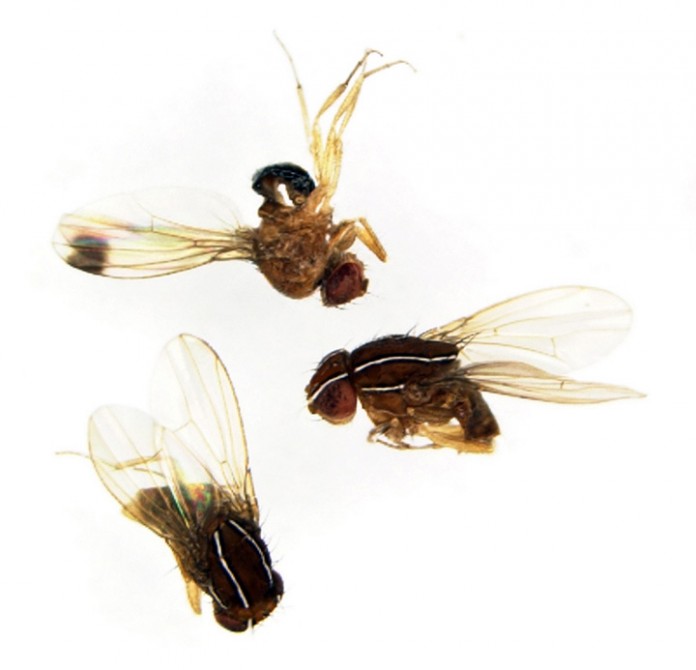UNIVERSITY PARK, Pa. — Penn State researchers recently discovered the African fig fly in Pennsylvania for the first time, giving fruit growers across the state another invasive pest to be on the look out for.
Zaprionus indianus Gupta, commonly known in Brazil as the African fig fly, was discovered last month by the Pennsylvania Department of Agriculture in grape and pest survey traps.
Hearty species
After reviewing samples from 2011, Biddinger discovered AFF has been in Adams county for the last two growing seasons.
“This is important because AFF is considered a tropical pest. Not only did it survive the extremely mild winter of 2011-12, but also the more typical previous winter,” says Biddinger.
He points out that while SWD traps have greatly increased in the last two weeks despite heavy frosts, the same vinegar traps are no longer catching AFF. AFF is now recorded from Adams, York, Dauphin and Clearfield counties according to the Pennsylvania Department of Agriculture.
According to Biddinger, AFF is easily distinguished from all other fruit flies in our region due to a pair of silvery-white strips from antennae to thorax tip that are outlined along both sides by black stripes.
“The PDA has humorously nicknamed AFF the ‘Speed Racer Fly’ since it has prominent ‘racing stripes’,” he says.
Description
Adults of this species are slightly larger in size than the spotted wing drosophila and the background color of the body is lighter than most other drosophilid flies commonly found in vinegar monitoring traps.
Native to Africa, the Middle East, and Eurasia, it is now found in much of South and Central America where it is mainly a pest of figs. It was first found in Florida in 2005, where it quickly spread and out-competed other fruit flies. New records were found for Michigan, North Carolina and Connecticut in September of this year and it appears to be spreading throughout the South as far west as Texas.
Since it does not have a large, sharp ovipositor like SWD females, AFF appears to only attack damaged and over-ripe fruit and the harsher winters of Pennsylvania may prevent it from establishing as aggressively here as it did in Florida.
“So far, numbers of adults collected in vinegar traps have been only a fraction the number of SWD collected,” Biddinger explains.
“An exception is from net collected samples in a grape vineyard where numbers of AFF greatly outnumbered SWD. While it appears from our samples that grape is not a preferred host of SWD, it may be that grape is preferred by this new fruit fly. AFF also has the it has potential to damage small fruits such as cherries, blueberries, blackberries, strawberries, and raspberries.”
Monitoring
AFF’s presence and damage potential in grapes and other crops is under investigation by Biddinger’s lab and Kathy Demchak, Penn State small fruit specialist. Monitoring efforts throughout the state will continue next season by PDA and Penn State and records for new hosts and county records can be forwarded to either institution.
For more information about AFF and other fruit pests, visit http://agsci.psu.edu/frec.
The Pennsylvania IPM program is a collaboration between the Pennsylvania State University and the Pennsylvania Department of Agriculture aimed at promoting integrated pest management in both agricultural and urban settings. For more information, contact the program at 814-865-2839, or go to www.paipm.org.












